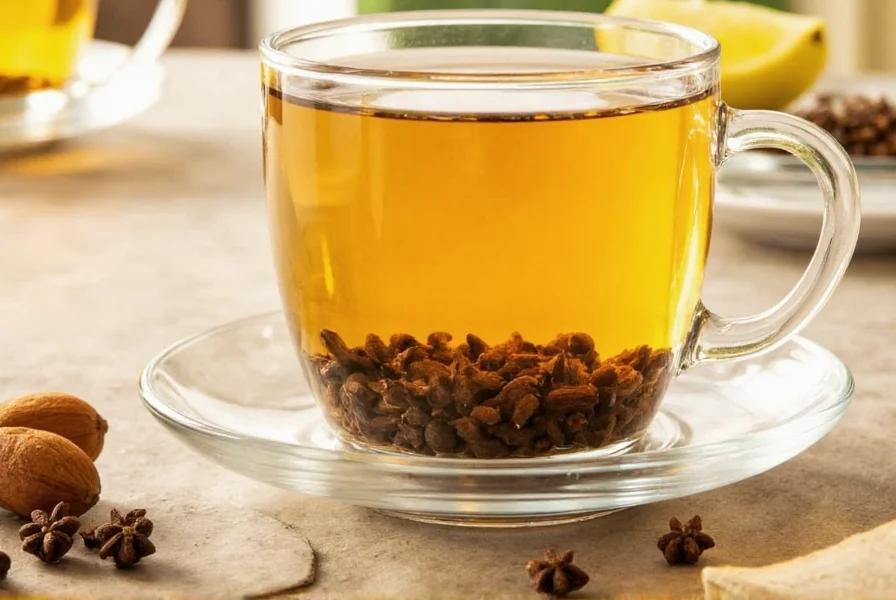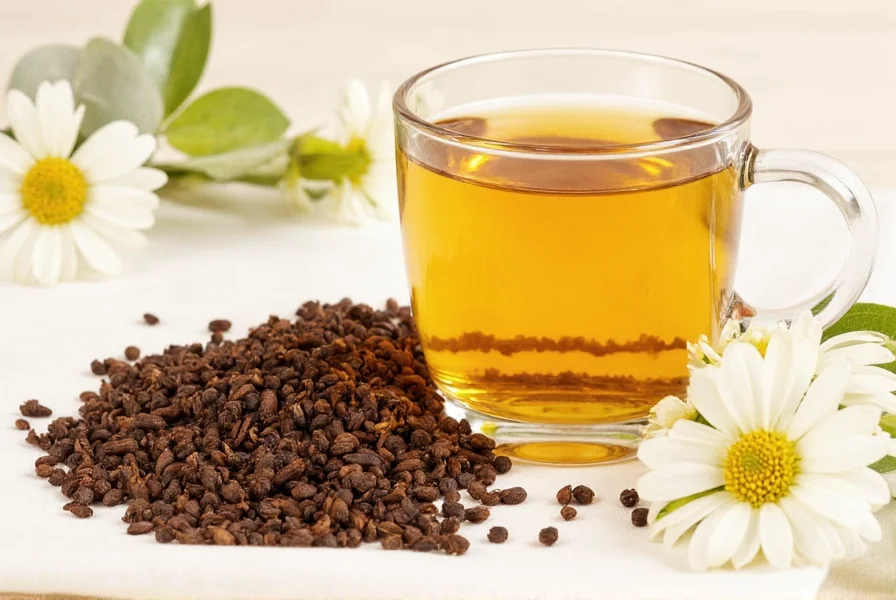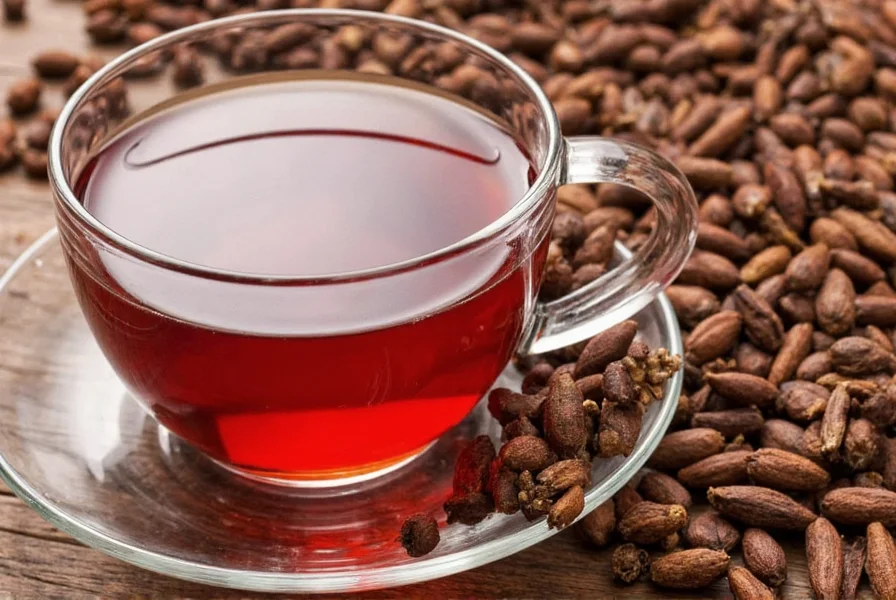Cloves tea has gained popularity as a traditional herbal remedy with roots in Ayurvedic and Chinese medicine. This aromatic beverage, made by steeping dried clove buds in hot water, contains potent bioactive compounds that contribute to its therapeutic properties. Unlike many commercial herbal teas, cloves tea preparation preserves the natural chemical composition of Syzygium aromaticum, the botanical name for cloves.

What Exactly Is Cloves Tea?
Cloves tea refers specifically to an infusion created from the dried flower buds of the clove tree, not from leaves or other plant parts. These small, nail-shaped buds contain 15-20% essential oil, with eugenol comprising 70-90% of this oil content. The tea's distinctive warm, spicy flavor and aroma come from this complex chemical profile.
Historically, cloves have been used for medicinal purposes across Asian and Middle Eastern cultures for centuries. Ancient Chinese records dating back to 200 BCE mention cloves as a remedy for toothaches and digestive issues. The spice eventually made its way to Europe through trade routes, where it became valued both as a culinary ingredient and medicinal agent.
Nutritional and Chemical Composition
The therapeutic potential of cloves tea stems from its rich phytochemical composition. Key components include:
| Compound | Percentage in Cloves | Primary Benefits |
|---|---|---|
| Eugenol | 70-90% of essential oil | Anti-inflammatory, antimicrobial, pain relief |
| Beta-caryophyllene | 5-15% of essential oil | Anti-inflammatory, digestive support |
| Vitamin C | 11.26 mg per 100g | Antioxidant, immune support |
| Manganese | 0.6 mg per 100g | Bone health, metabolism support |
These compounds work synergistically when brewed as tea, creating a beverage with significantly different properties than consuming cloves in other forms. The hot water extraction process selectively draws out water-soluble compounds while leaving behind some of the more concentrated essential oils that could be irritating in larger quantities.
Scientifically-Supported Health Benefits of Cloves Tea
Research has identified several evidence-based health benefits associated with regular consumption of properly prepared cloves tea:
Digestive Health Support
Multiple studies, including research published in the Journal of Agricultural and Food Chemistry, have demonstrated that eugenol in cloves tea stimulates digestive enzyme production. This effect helps reduce bloating, gas, and indigestion. The tea's carminative properties make it particularly effective for soothing an upset stomach when consumed after meals.
Natural Pain Relief Properties
Cloves tea preparation releases eugenol, which has well-documented analgesic effects. A clinical trial in the Journal of Dentistry found that clove oil (the primary component in cloves tea) provided significant toothache relief comparable to benzocaine. While tea contains lower concentrations than pure oil, regular consumption may offer mild pain-relieving benefits, particularly for dental discomfort.
Antioxidant Capacity
According to research in Nutrition Research and Practice, cloves possess one of the highest antioxidant capacities among common spices. When brewed as tea, these antioxidants become bioavailable, helping combat oxidative stress. The ORAC (Oxygen Radical Absorbance Capacity) value of cloves is approximately 290,283 μmol TE/100g, significantly higher than many fruits and vegetables.
Proper Preparation Methods for Maximum Benefits
To maximize the health benefits while minimizing potential irritation, follow these evidence-based preparation guidelines for how to make cloves tea for digestion and other purposes:
- Use 2-3 whole dried cloves per 8 ounces of water (avoid ground cloves which can make the tea bitter)
- Bring filtered water to just below boiling (approximately 200°F or 93°C)
- Pour hot water over cloves in a teapot or heat-safe container
- Cover and steep for 5-10 minutes (longer steeping increases potency but may cause bitterness)
- Strain the tea to remove whole cloves before drinking
- Optional: Add lemon or a small amount of raw honey for additional benefits
This preparation method optimizes the extraction of beneficial compounds while minimizing the release of potentially irritating components. For cloves tea for toothache relief, allow the tea to cool slightly before swishing it around the affected area for 1-2 minutes before swallowing.

Safety Considerations and Potential Side Effects
While potential side effects of cloves tea are minimal when consumed in moderation, certain precautions are necessary:
- Blood thinning effects: Eugenol may enhance the effects of blood-thinning medications like warfarin. Consult your physician if taking anticoagulants.
- Dental sensitivity: Undiluted clove oil can damage tooth pulp, but properly prepared tea poses minimal risk.
- Pregnancy considerations: Limited research exists on cloves tea during pregnancy. Most healthcare providers recommend moderate consumption only.
- Allergic reactions: Though rare, some individuals may experience oral irritation or allergic responses.
The safe daily consumption limit for cloves tea appears to be 2-3 cups for most adults. Exceeding this amount may lead to nausea, vomiting, or liver toxicity in sensitive individuals, particularly when combined with alcohol consumption.
Cloves Tea in Context: Comparing Herbal Remedies
When considering cloves tea vs ginger tea benefits, each offers unique advantages. Ginger tea excels at reducing nausea and motion sickness, while cloves tea provides stronger antimicrobial properties and dental benefits. For digestive support, a combination of both may offer complementary effects.
Unlike many commercial herbal blends, pure cloves tea maintains the integrity of the original compounds without dilution. This makes it particularly valuable for scientific studies on cloves tea benefits that require consistent chemical profiles.
Conclusion: Incorporating Cloves Tea Safely
Cloves tea represents a time-tested herbal remedy with growing scientific validation for specific health applications. When prepared correctly using whole cloves and appropriate steeping methods, it offers a safe, natural option for digestive support, mild pain relief, and antioxidant protection. As with any herbal remedy, consistency and moderation yield the best results, and consultation with healthcare providers remains essential for those with existing medical conditions or taking medications.
How often can I safely drink cloves tea?
Most adults can safely consume 1-2 cups of cloves tea daily. Exceeding 3 cups per day may increase the risk of side effects like nausea or mouth irritation. Individuals with bleeding disorders or taking blood thinners should consult their healthcare provider before regular consumption.
Can cloves tea help with sore throat relief?
Yes, cloves tea can provide sore throat relief due to its anti-inflammatory and antimicrobial properties. The eugenol content helps reduce throat inflammation while fighting bacteria that may contribute to infection. For best results, sip warm cloves tea slowly or use it as a gargle (cooled to comfortable temperature) several times a day.
Is cloves tea safe for children?
Cloves tea is generally not recommended for children under 2 years old. For older children, consult a pediatrician first. If approved, serve only small amounts (1/4 to 1/2 cup) of weakly brewed tea. Never give children concentrated clove oil or strongly brewed tea due to potential irritation and the risk of liver toxicity in high doses.
Does cloves tea interact with medications?
Yes, cloves tea may interact with blood-thinning medications like warfarin due to eugenol's antiplatelet effects. It might also affect drugs metabolized by the liver. If you take any prescription medications, especially anticoagulants, consult your healthcare provider before regularly consuming cloves tea to avoid potential interactions.
Can I drink cloves tea on an empty stomach?
While some people drink cloves tea on an empty stomach for digestive benefits, others may experience mild stomach irritation. If you have a sensitive stomach, consume cloves tea after meals. For digestive support, drinking it 20-30 minutes before meals may help stimulate digestive enzymes without causing discomfort.











 浙公网安备
33010002000092号
浙公网安备
33010002000092号 浙B2-20120091-4
浙B2-20120091-4